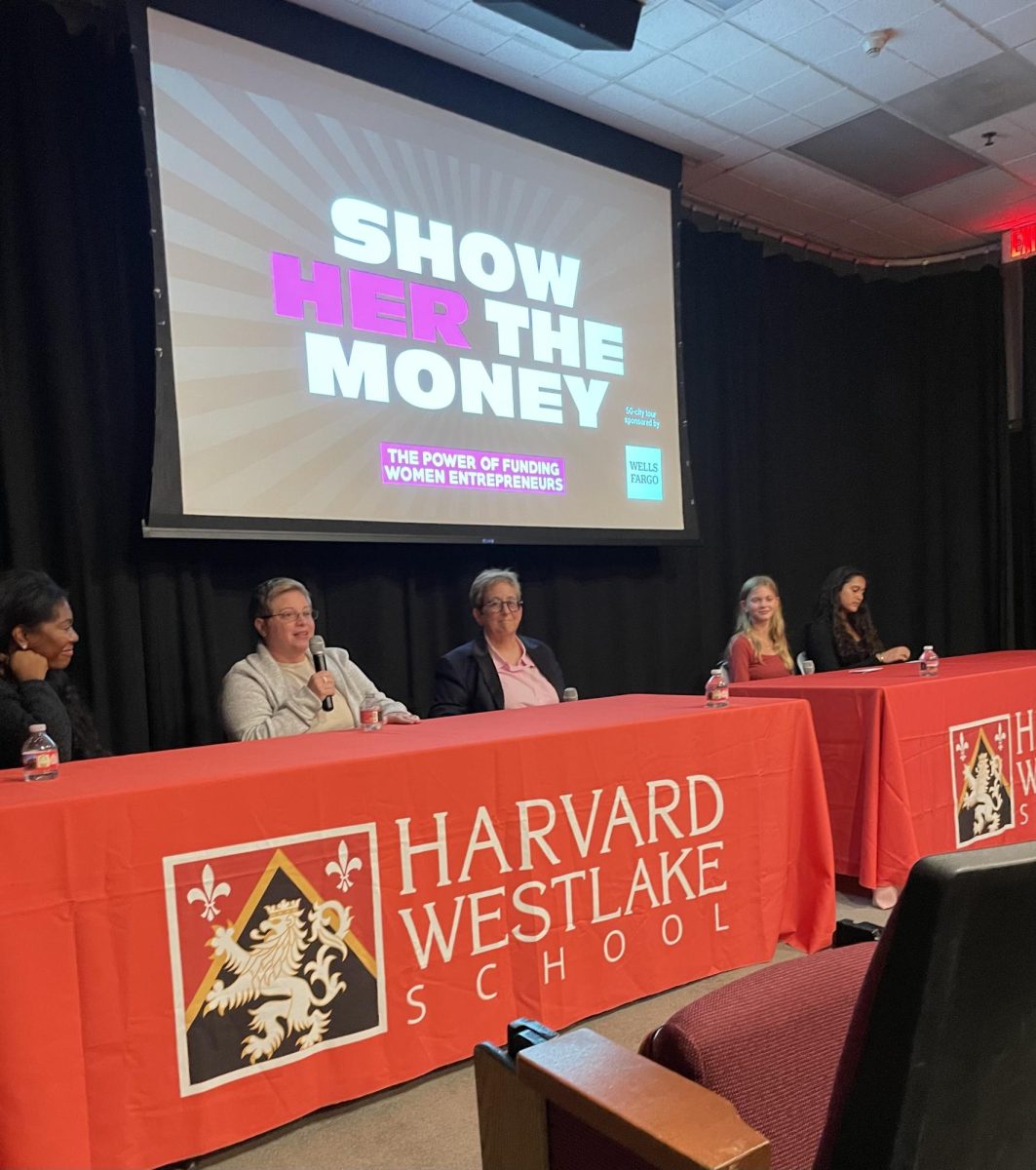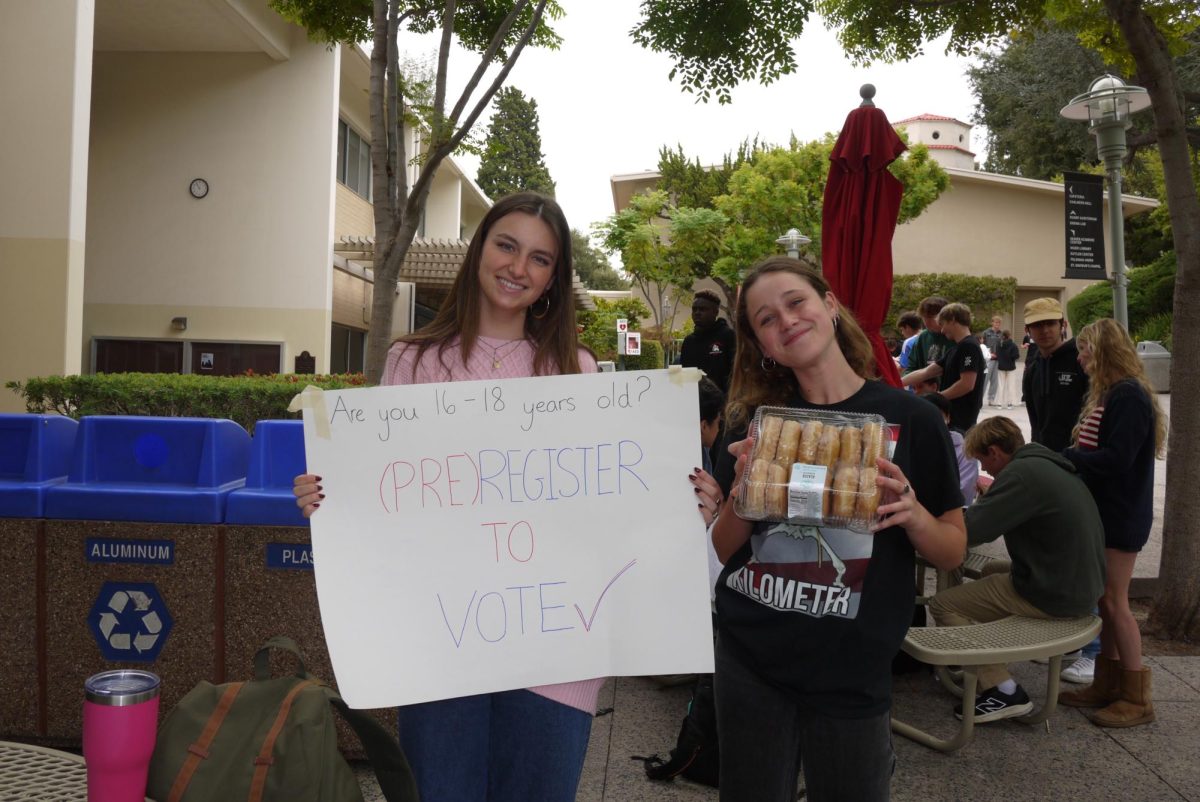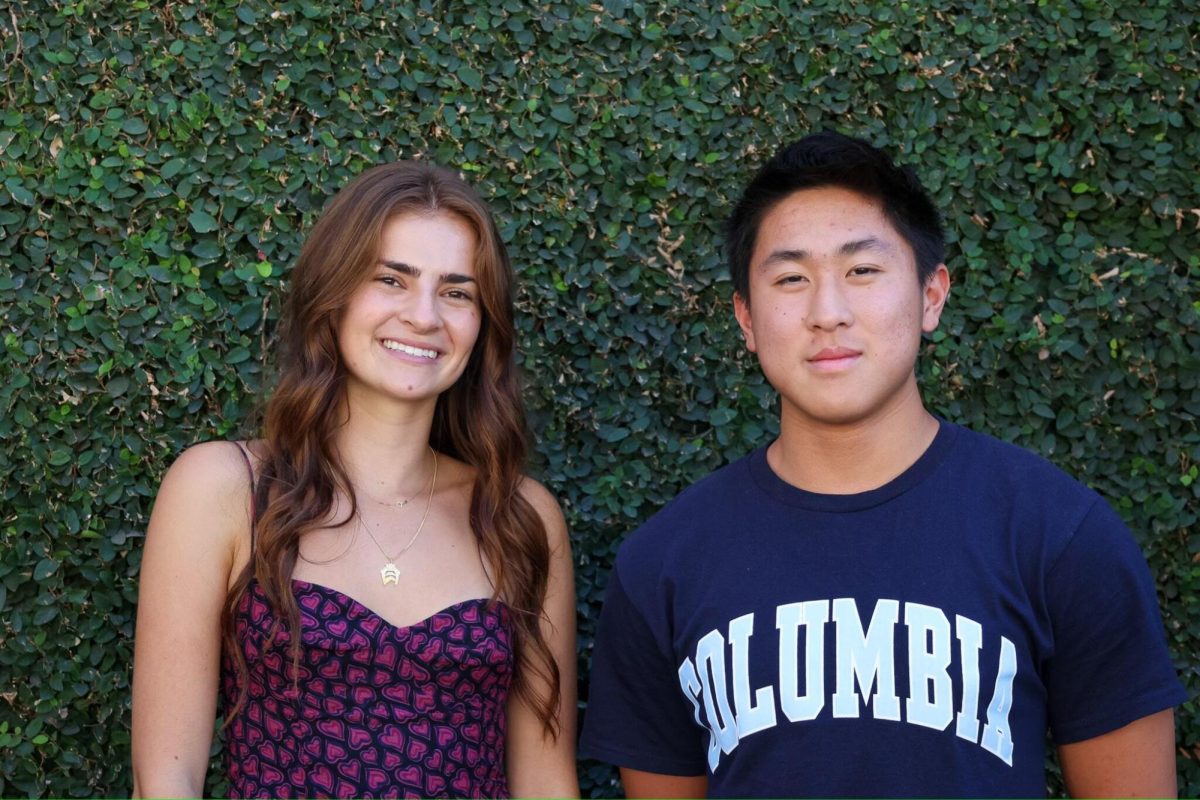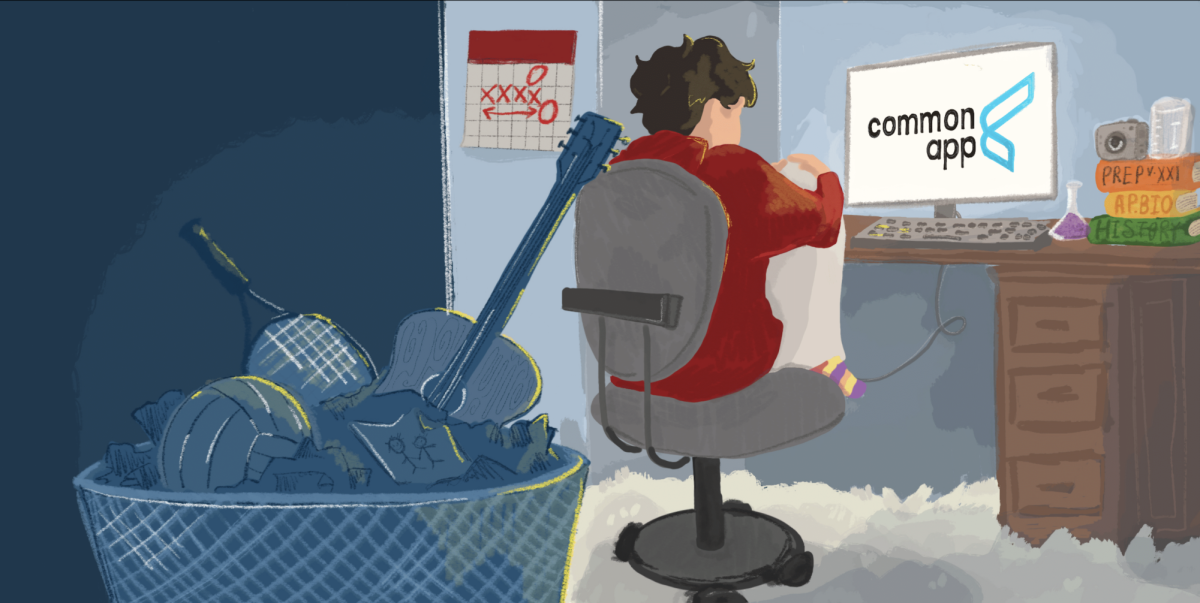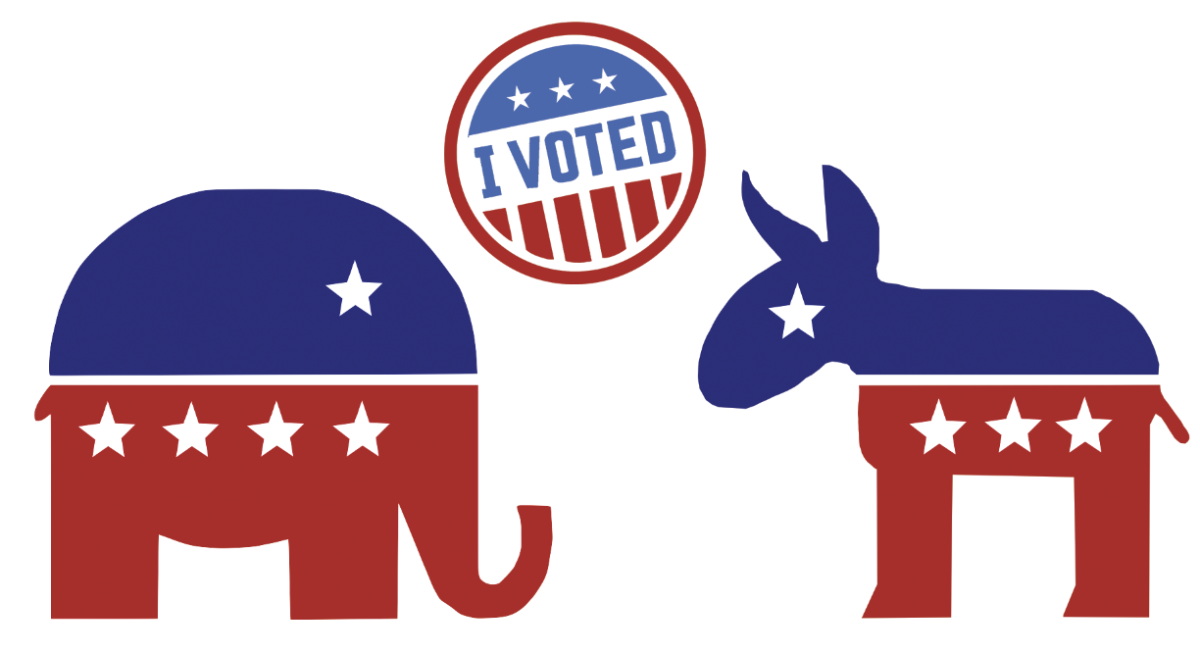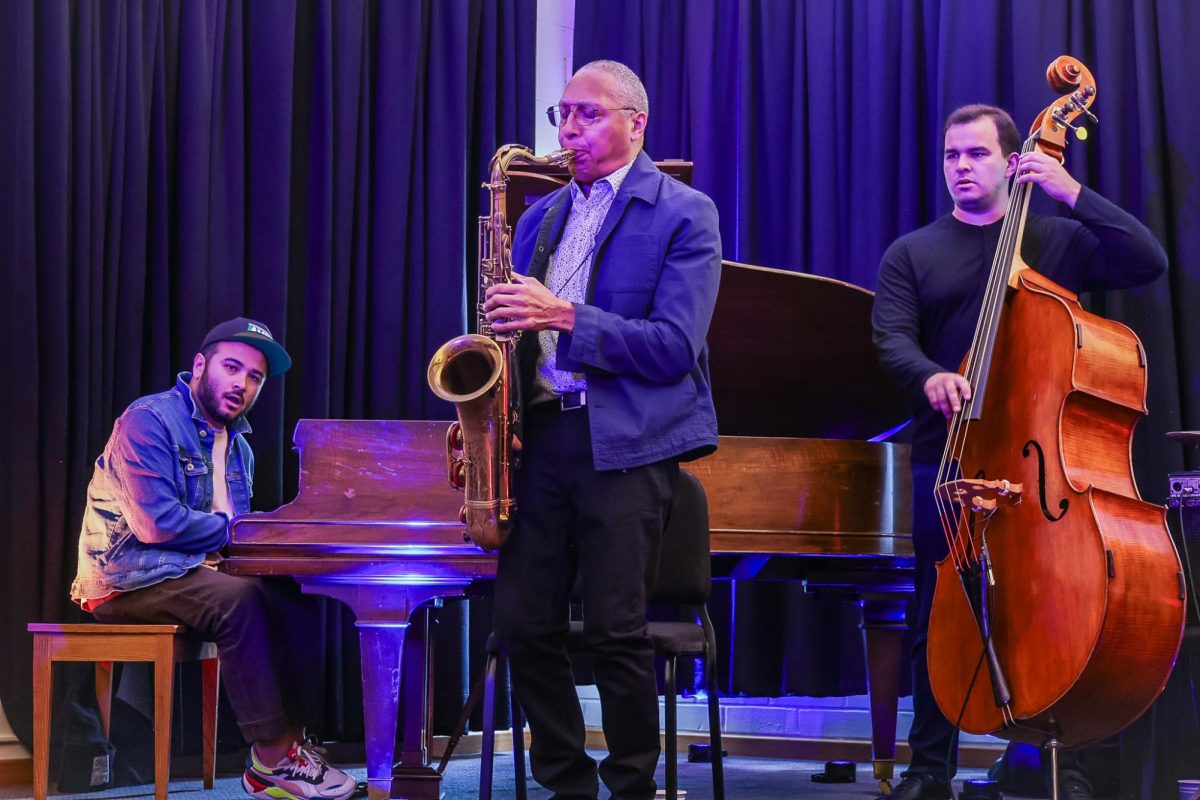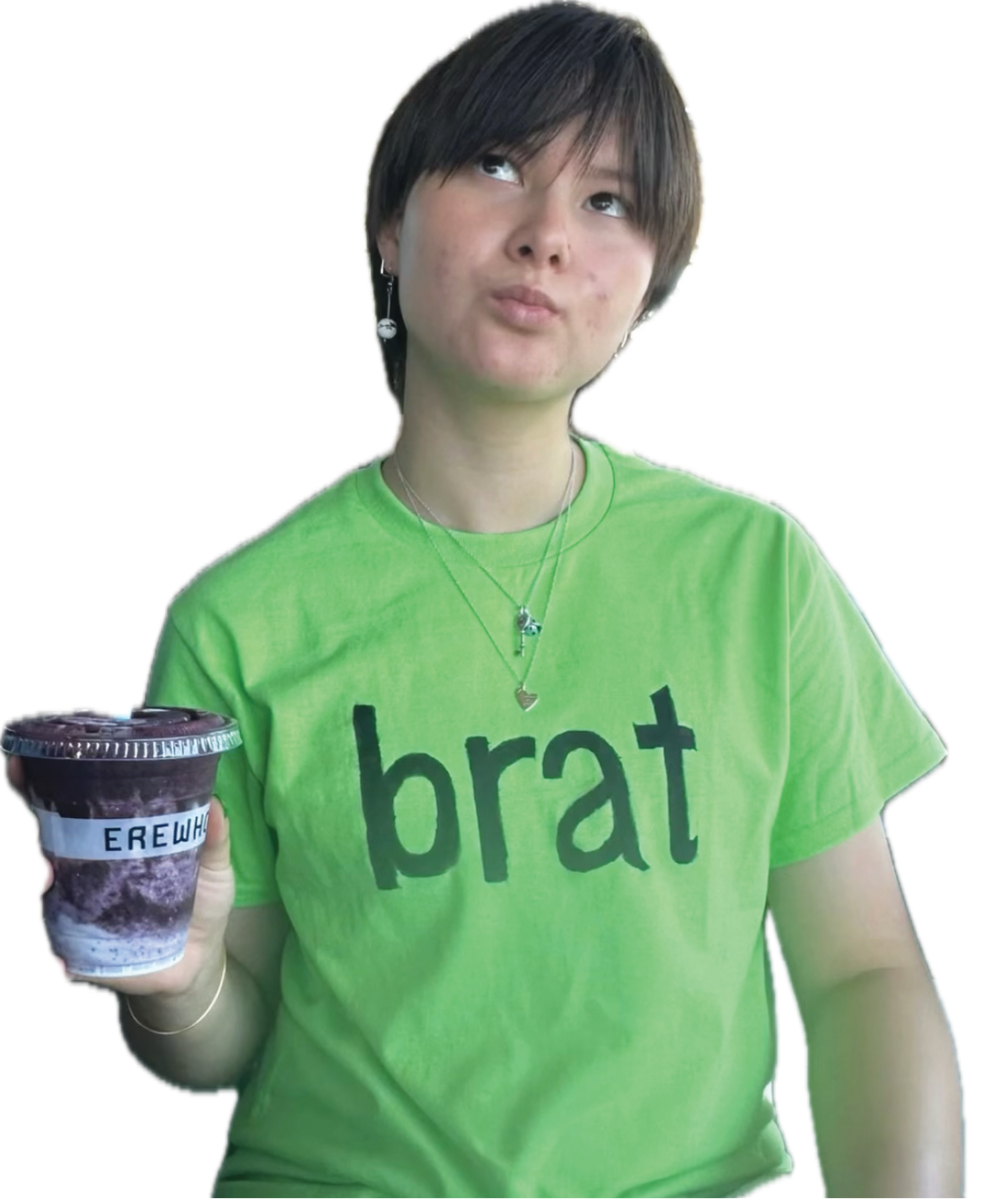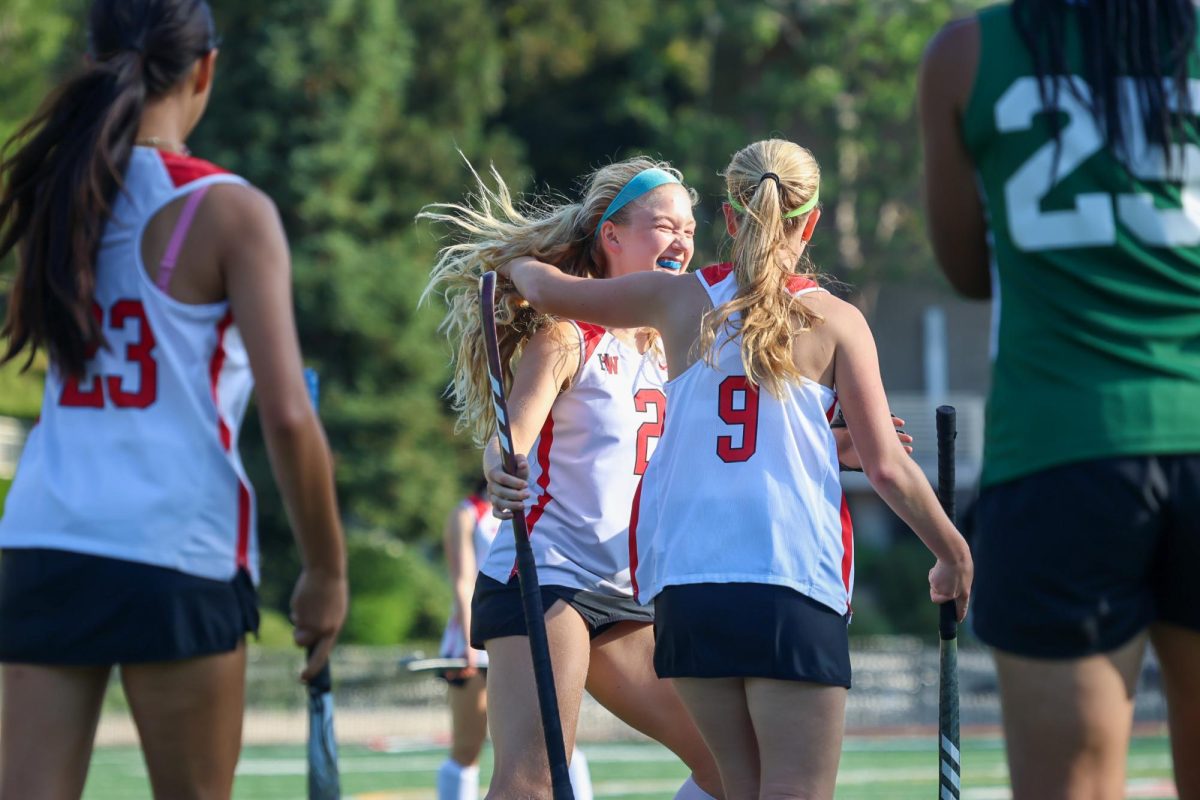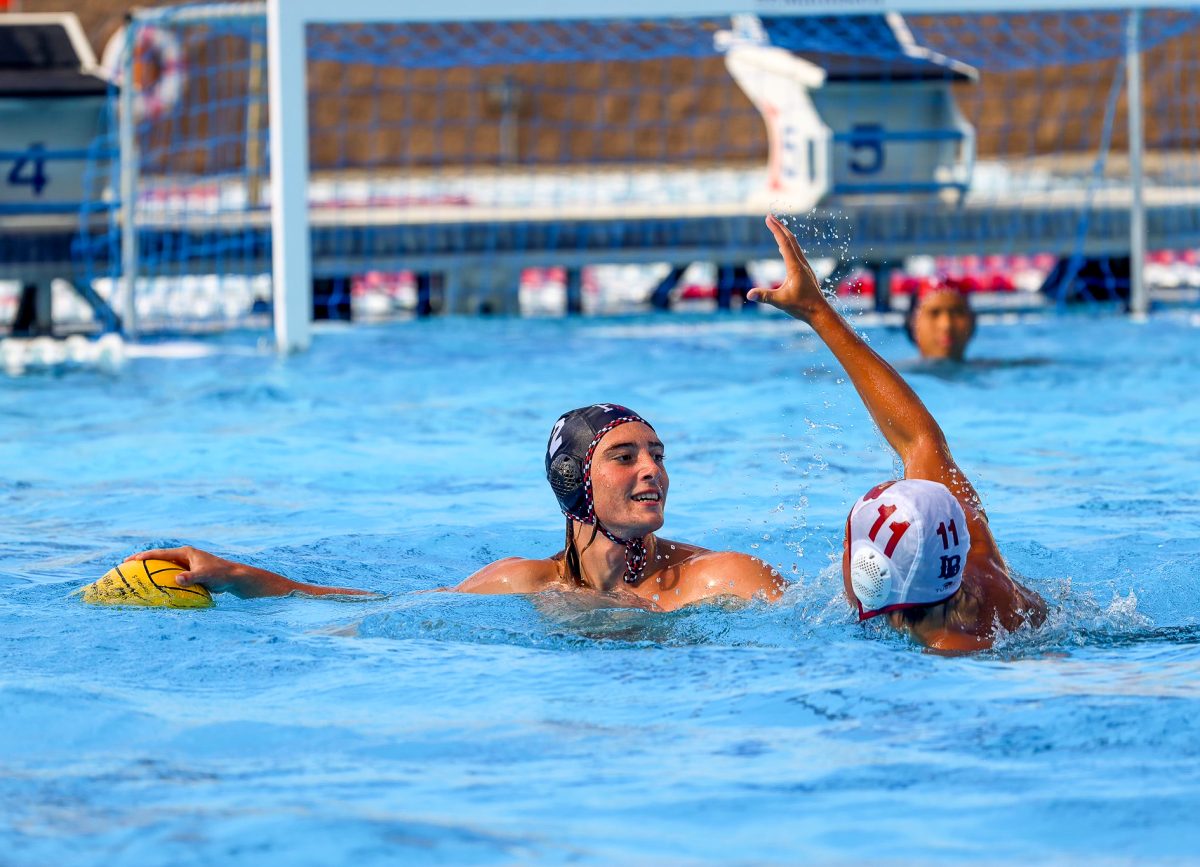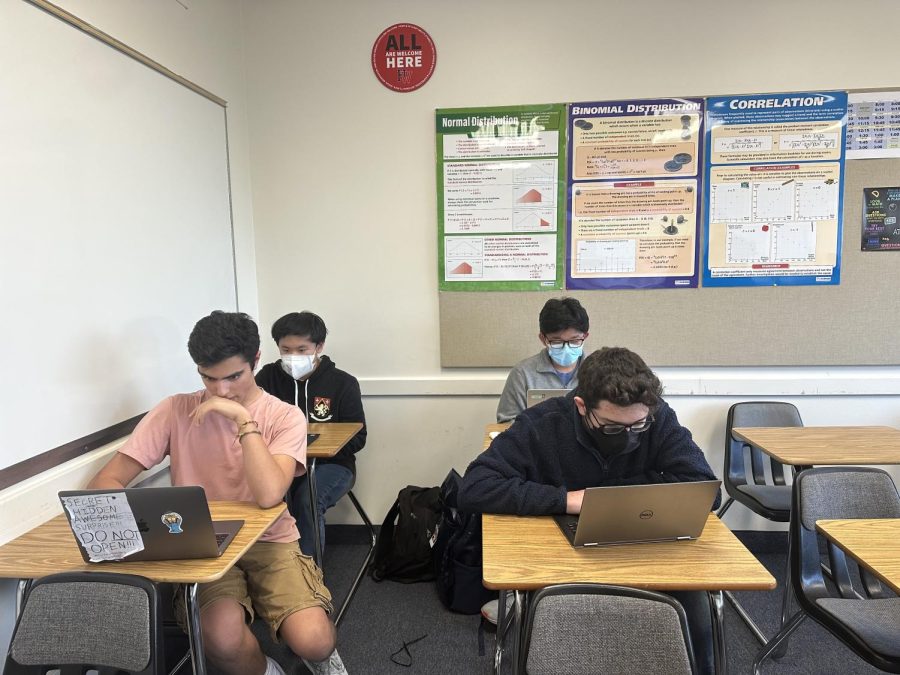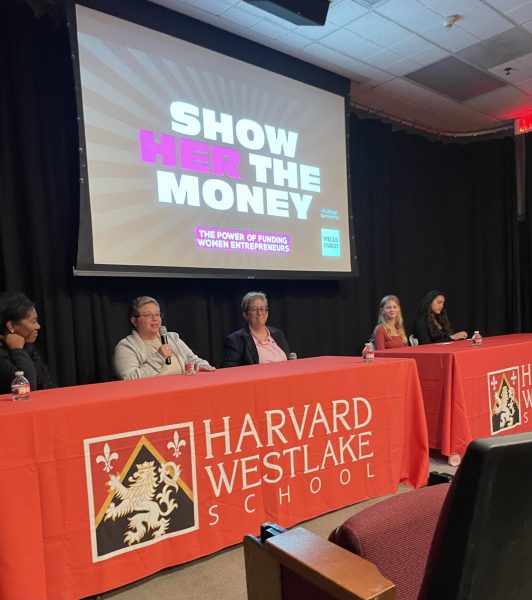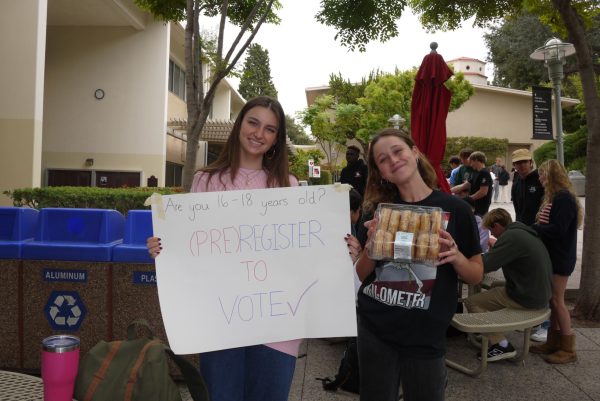Unified course surveys rolled out
Jacob Massey ’25, Elliot Lichtman ’23, Hugh Cheng ’25 and Sophomore Prefect Eric Lee ’25 take the new unified course survey on their laptops, allowing them to give feedback on their teachers.
Upper school students completed surveys for each of their courses during January, the first time the administration has conducted a universal survey instead of ones created by individual teachers. Through the school’s website, students answered the same questions for each course and left written feedback about class curriculums and teacher instruction.
Director of Institutional Research Mike Barker was hired by the school in 2020 to collect data in order to improve various aspects of school life. Barker said while creating the surveys, the main goal was to improve course curriculums.
“The overall initiative is to use a standard survey to ask students questions about their experience in the courses,” Barker said. “I think it’s really important that students have an opportunity to express how they’re enjoying the course and how the course can be improved [and] how their teacher is teaching. The form is also helpful to the teacher in terms of trying to make the course better. The basic effort is just to help improve the learning experience with the students.”
According to Barker, the survey questions were developed by a team of over 40 teachers. Barker said the team created the questions with certain teaching principles in mind.
“[The surveys were] created with the help of about 40 to 45 teachers who had direct input into how the questions are structured,” Barker said. “In the last year or two, teachers have been developing a set of principles that articulate what is good teaching. So the questions aren’t just a set of questions we think are important, they’re actually measuring important things that the faculty has articulated as good teaching.”
Science Teacher Nancy Chen said the surveys help her adapt teaching methods to better fit the needs of her students.
“Getting students to give feedback is also important, and adjusting how we teach in class,” Chen said. “I think there is a benefit in reflecting on how I teach, especially since every year, the group of students is going to be different. So I need to be able to adjust how I teach in a given year in a given class. So that’s helpful in terms of my own professional growth.”
Chris Weng ’24 said he thinks in some cases, the surveys can help students who don’t feel comfortable bringing up problems in their classes.
“In a lot of classes, students fill out the survey because it’s just another survey that we fill out,” Weng said. “But I think in the few cases where students have legitimate issues to bring up, and they might be too scared to bring it up with their dean or teacher, I think it does provide an outlet for students who have legitimate issues that they want to bring up.”

